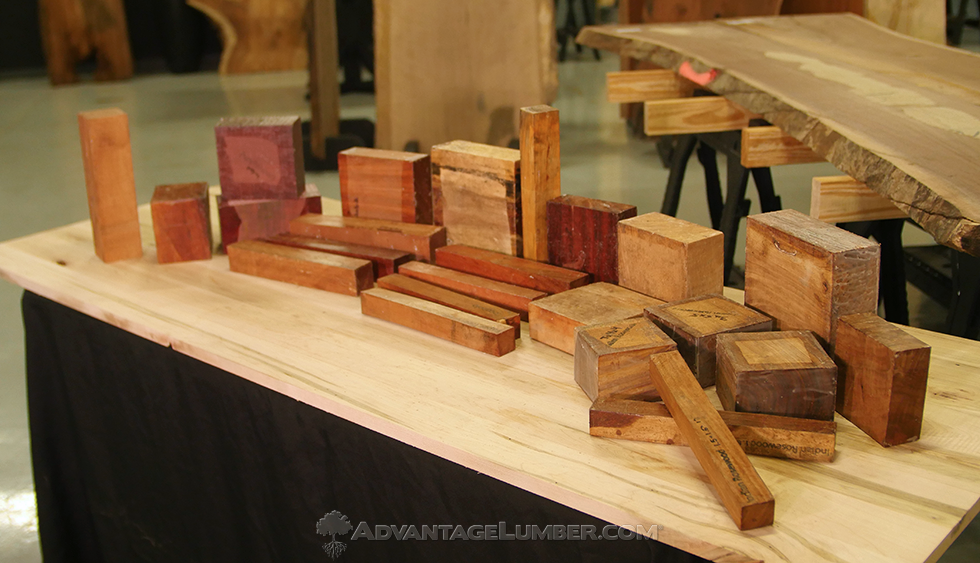- Scientific Name
- Diospyros virginiana
- Common Name(s)
- Persimmon, White Ebony
- Distribution
- Eastern United States
- Average Dried Weight
- 52 lbs/ft3 (835 kg/m3)
- Specific Gravity
- Basic: .74, 12% MC: .83
- Janka Hardness
- 2,300 lbf (10,230 N)
- Modulus of Rupture
- 17,700 lbf/in2 (122.1 MPa)
- Elastic Modulus
- 2,010,000 lbf/in2 (13.86 GPa)
- Crushing Strength
- 9,170 lbf/in2 (63.2 MPa)
- Shrinkage
- Radial: 7.9%, Tangential: 11.2%, Volumetric: 19.1%, T/R Ratio: 1.4
- Appearance
- Very wide sapwood is a white to pale yellowish-brown. Color tends to darken with age. Very thin heartwood (usually less than 1″ wide) is dark brown to black, similar to ebony. (Persimmon is in the same genus—Diospyros—as true ebonies.)
- Texture
- Grain is straight, with a uniform medium-coarse texture. Endgrain: Semi-ring-porous; medium-large earlywood pores sometimes form broken rows, latewood pores medium-small; solitary and radial multiples of 2-3; growth rings usually distinct; rays not visible without lens; parenchyma diffuse-in-aggregates, vasicentric, and banded (reticulate and marginal).
- Rot Resistance
- Being that nearly all of Persimmon is sapwood, it is rated as perishable and is susceptible to insect attack.
- Workability
- Overall workability is so-so. Persimmon generally responds well to hand tools, but can be difficult to plane and blunts cutting edges faster than expected. Turns and finishes well.
- Odor
- No characteristic odor.
- Allergies/Toxicity
- Persimmon has been reported to cause skin irritation.
- Pricing/Availability
- Not commonly available in lumber form, Persimmon may occasionally be seen in smaller blocks or turning blanks. Expect prices to be high for a domestic species.
- Sustainability
- This wood species is not listed in the CITES Appendices or on the IUCN Red List of Threatened Species.
- Common Uses
- Turned objects, golf club heads, veneer, and other small specialty wood items.
- Comments
- Persimmon trees are known much more commonly for their fruit, and not their wood. Persimmon is technically related to true ebonies (Diospyros genus), and is therefore sometimes referred to as “white ebony.” Persimmon wood is heavy, hard, and strong for a temperate species. It has excellent shock and wear resistance, but has a very high shrinkage rate, and may experience significant movement in service.



